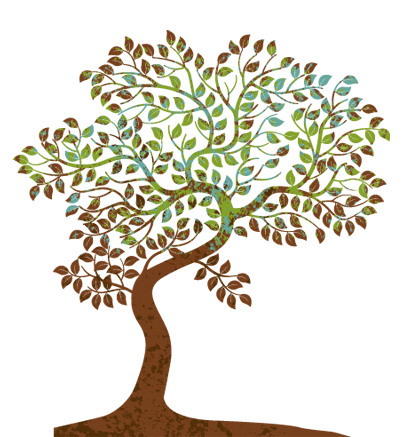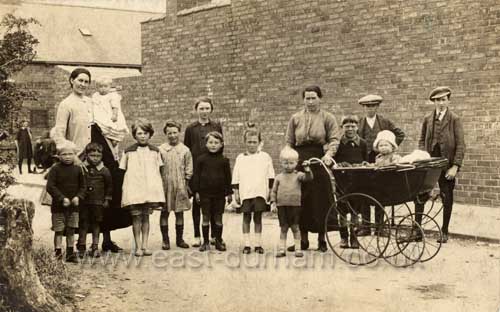

Many families can expect to find at least one black sheep lurking in their family tree. Now it is easier still to find out if there is one in your family as almost two million new records are now available on line.
The records chart more than 150 years of crime and punishment in England and Wales. They reveal a very different criminal justice system, when a death sentence was seen as fitting punishment for forging money and public executions were the norm.
Genealogy website Findmypast have a dedicated Crime, Prison and Punishment page. Here you will find all the brand new crime and punishment record sets as well as articles, guides and videos on tracing your criminal ancestors or indeed any ancestors who were victims of a crime.
This page will give you some general tips and pointers if you're completely new to family history. Our first advice - don't panic! It may seem daunting at first but the good news is that you can make a lot of progress before you even start searching historical records, just by doing some basic research before you start. And better still, family history is a very friendly world, with millions of generous people worldwide who are extremely happy to share their insights and knowledge with you.
Family history begins at home. Your
starting point for your family history is your family members
themselves, in particular the older members. No research can
replace hearing first-hand accounts from the people whose shared
history you are trying to trace. There's a good chance that they
will know the names of relatives whom it would otherwise take
months to find by searching alone, as well as stories and legends
that you won't find in any record.
Discovering whether such tales are
accurate is one of the joys of building your family tree. Do take
comprehensive notes. Not only does this remind you of your source
once your family tree begins to grow, but it is also a document of
your personal history for future generations. Investigating your
family's past in detail may cause you to uncover some unpleasant
surprises, as well as all the fascinating finds and new relatives
you will uncover.
Below is a list of questions you may
wish to start with when asking about a specific ancestor. This is
only a guide and you may have more specific questions that you
would like to ask.
• What was their full name? Did they
have a middle name or nickname that they preferred?
• When did they die? What was the
cause of their death? Where were they buried?
• Were they married? If so, what was
the name of their spouse? When and where did their spouse
die?
• When did they marry? Where did the
marriage occur? Was this the only marriage for both
parties?
• Where did they
live?
• Did they have children? If so, what
were their children's names?
• Did their children marry and where
did or do they live? If they are deceased where and when did they
die?
• What was their occupation? Where did
they work? Did they serve in the military?
• Where and when were they
born
• What school or schools did they
attend? Did they attend university?
• Were they a member of a religious
community, or parish? Which religious denomination were
they?
• Do you have any documentation of
their life, such as birth, marriage or death certificates, their
Will or other written records?
• Do you have any photographs or
newspaper clippings of them? Do you know anything about their
physical appearance or accent?
• Would any other relatives have
further information, memories, or records relating to
them?
Starting at home doesn't simply mean
speaking to those closest to you, but also examining the contents
of your home itself. Often there will be old photographs, videos,
letters and other heirlooms to discuss and investigate. If you're
fortunate, there may also be birth, marriage and death certificates
for family members, which will save you time and the cost of
ordering copy certificates.
Certificates hold a wealth of
information about your ancestors.
Birth certificates can tell
you:
• When and where a person was
born
• Their father’s name -where
acknowledged. Illegitimate births may not state the father’s
name
• Mother's name
• Father's
occupation.
Marriage certificates can tell
you:
• The date that the marriage took
place
• The bride and groom's full
names
• Their ages (note: age given is as
stated by bride/groom, and may not be accurate)
• Condition at marriage, i.e. widowed,
divorced, or single
• Their profession
• Their residence
• The bride and groom's fathers'
names. If a father's name is followed by 'deceased', then search
backwards from the date of marriage to find a death certificate for
him.
• The bride and groom's fathers'
occupations
• Names of witnesses - often family
members.
Death certificates can tell
you:
• When and where a person
died
• Their age
• Their occupation
• The cause of
death
• Details of the informant (often a
family member).
When you are starting out in family
history, the abundance of available records, and the huge task of
tracing your ancestors through the centuries, may seem a little
daunting. Your research is personal, and your family's history
unique; however, there are lots of resources and groups that can
help you.
There are also family history fairs
throughout the year: whether you live in Europe, the USA or further
afield, there's bound to be an event near you.
1. Speak to older family members
-make sure you record the conversations, or note down what they
tell you
2. Check the family home for
photographs, letters, videos, certificates, and other material
likely to offer clues
3. Create a picture of your family
using any birth, marriage and death certificates you have access
to
4. Order birth, marriage and death
certificates to obtain more information and to progress further
back in time
5. Consider joining a family history
society (Seaham Family History Group) ,
visit libraries and family history fairs.

Seaham - Colliery Street

Seaham Lifeboats · Skynner crew circa 1895